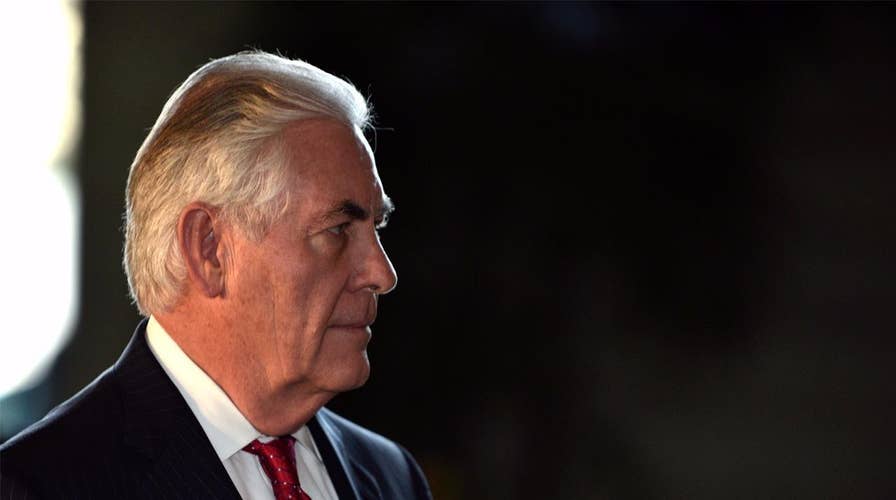Will cutting the State Department budget hurt the US?
Bias Bash: Judy Miller on press reaction to the Trump administration's decision
In a world where we face more, not fewer global crises that threaten our national interests and security, now is not the time for America to pull back from its global influence and engagement. During my 36-year career in the U.S. military, I saw firsthand the return on investment for our country when all the tools of American power – diplomacy and development alongside defense – are strengthened and work in coordination.
Unfortunately, the Administration’s proposed 31% cut to the State Department and USAID looks prepared to reduce our influence and close many of our aid missions in Latin America, a part of the world where I had the honor and privilege to lead America’s military presence.
As the commanding general of U.S. Southern Command, I faced security challenges to our nation’s own interests that lacked a military solution alone and where the military must work with our civilian partners. These include threats from narco-terrorism, illicit trafficking, corruption and weak governments, and natural disasters that can lead to instability in our hemisphere, even migration at our borders.
We need only look at Colombia, which has recently turned the page on nearly fifty years of conflict. What we achieved through “Plan Colombia,” a U.S.-sponsored program to assist the people of Colombia in developing a sustainable political, economic, and security structure for themselves, was simply remarkable.
In just a decade, we helped Colombians transform their country from a failing state harboring violence and narco-trafficking that bled across our borders into what former Secretary of Defense Robert Gates called “a lynchpin of prosperity in South America.” Colombia has seen a significant reduction in violence and, while more remains to be done, has become a valuable security and economic partner. In 2015, U.S. exports to Colombia quadrupled to over $15 billion. While challenges remain as in every country, U.S. foreign assistance undoubtedly contributed to greater stability and economic opportunity for the people of Colombia.
But the very resources that made our efforts possible then could soon be stripped away if the administration’s budget cuts are not reversed. Furthermore, the Administration is apparently considering merging USAID with the State Department, which would be misguided, ill-advised, and a direct threat to U.S. national security. But not for the work of USAID’s dedicated development and diplomacy personnel, the accomplishments in Colombia could have never materialized.
USAID is unequivocally America’s leading tool in the fight to combat poverty and promote resilient, democratic societies, and a testament to American ingenuity, courage and dedication. It serves a unique and critically important role, unlike that of any other agency. Working alongside our military and diplomatic corps, USAID offers countries the resources necessary to build a functioning civil society, train national armies and police forces, support democracy and the rule of law, and improve destitute living conditions that can fuel extremism and anti-American sentiment.
That is why I joined over 120 retired generals and admirals in writing Congress earlier this year with the message, “Now is not the time to retreat.” Alongside our military, investments in foreign assistance are important to advance our interests abroad.
To pull back from the international community now, as the administration’s budget proposes, would be irresponsible. And in Venezuela, where record high inflation, food shortages, and violent protests threaten what was once considered South America’s richest nation, American interests are best served by being engaged — not absent.
Allies of a strong international assistance budget in Congress will do all they can to oppose a vision for reducing America’s presence abroad and reducing or even eliminating global development in America’s national security toolkit.
An “America First” foreign policy should not mean withdrawal from the international community, but rather a balanced strategy that focuses on strategic investments in development and diplomacy — alongside defense — to build a better, safer world. For America’s interests to be served, America must remain at the table.









































